Submitted by WA Contents
BIG's spiral-shaped museum for Swiss watchmaking is set to open on June 25 in Le Brassus
Switzerland Architecture News - Apr 23, 2020 - 10:15 14186 views
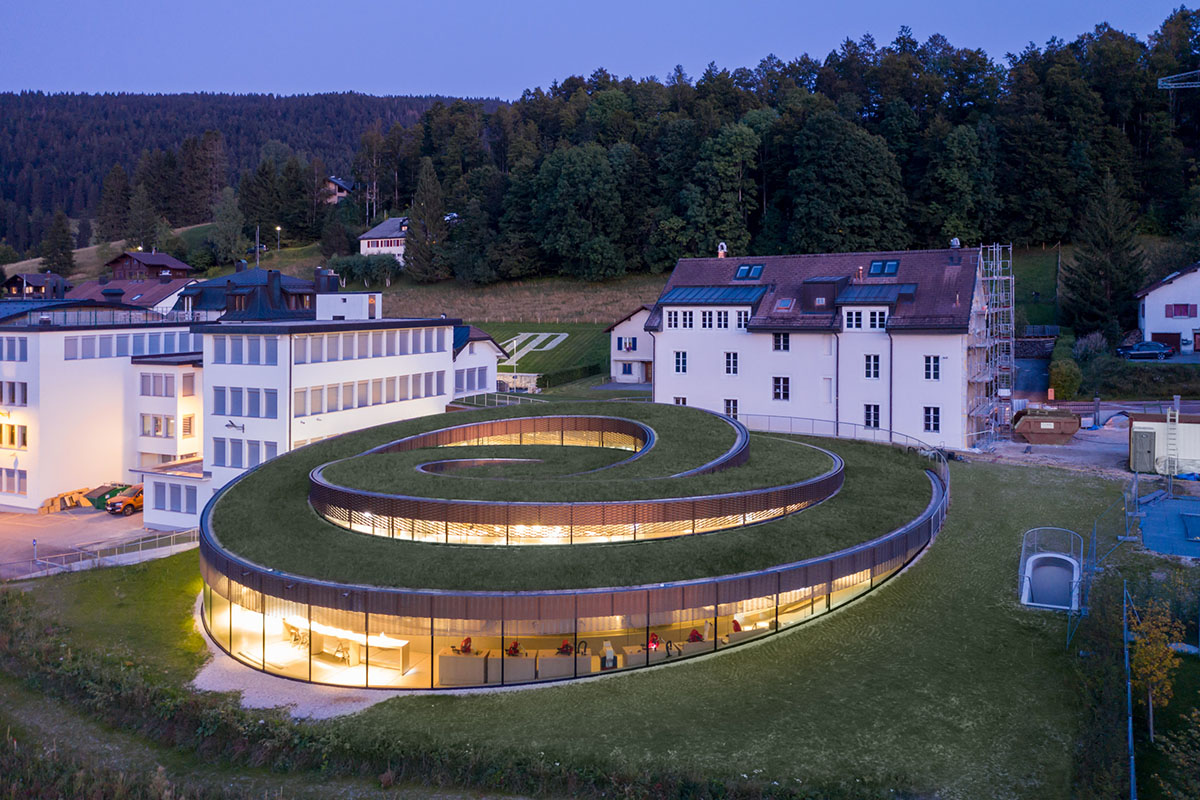
Bjarke Ingels Group has completed a spiral museum for the new home of the watchmaker Audemars Piguet, a well-known Swiss manufacturer of luxury mechanical watches and clocks, headquartered in Le Brassus, Switzerland.
Named Musée Atelier Audemars Piguet, the building functions as a museum, workshop and archive nestled in the watchmaking village of Le Brassus, Switzerland.
The low-rise museum is now scheduled to open on June 25. When opened, visitors will be able to journey through the 2,373-square-metre building in a continuous spiral path and will learn about the process of the brand’s 145 years of watchmaking throughout the new spatial organization. BIG's design addresses to the core values of the brand, as the studio highlighted.

The new museum will be connected to the historic building designed by Swiss architecture firm CCHE, the office also designed the new Musée Atelier Audemars Piguet.
BIG's new museum emerges as a striking landmark that is seamlessly integrated in the local landscape. The building features a green rooftop that provides a continuous lawn. The rooftop can be used for summers or winters in the snow.
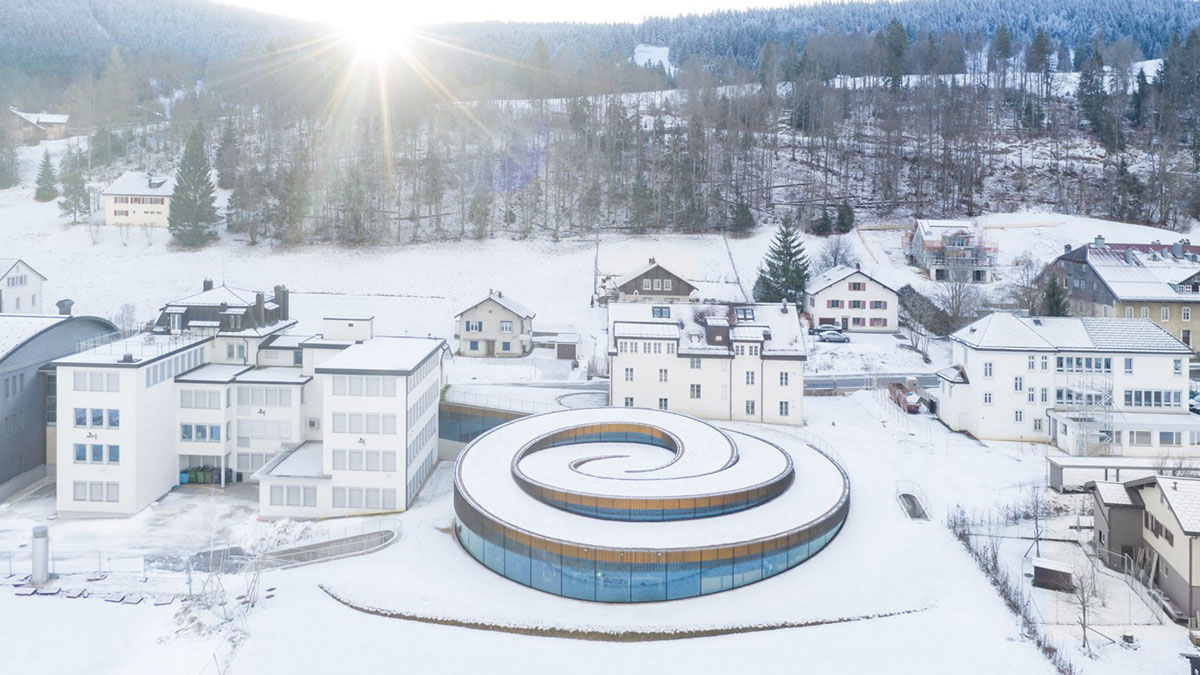
The whole structure of the building was designed with a load-bearing system, which mean, it doesn't have columns and walls. Curved glass act as a supportive element and provides a natural daylight via its clerestory windows.
Glazed windows also features a bronz mesh to filter sunlight in different angles and creates a historical journal for its visitors. A contemporary yet timeless architecture that blends with the historical buildings to create an intuitive sequence of spaces - old and new.
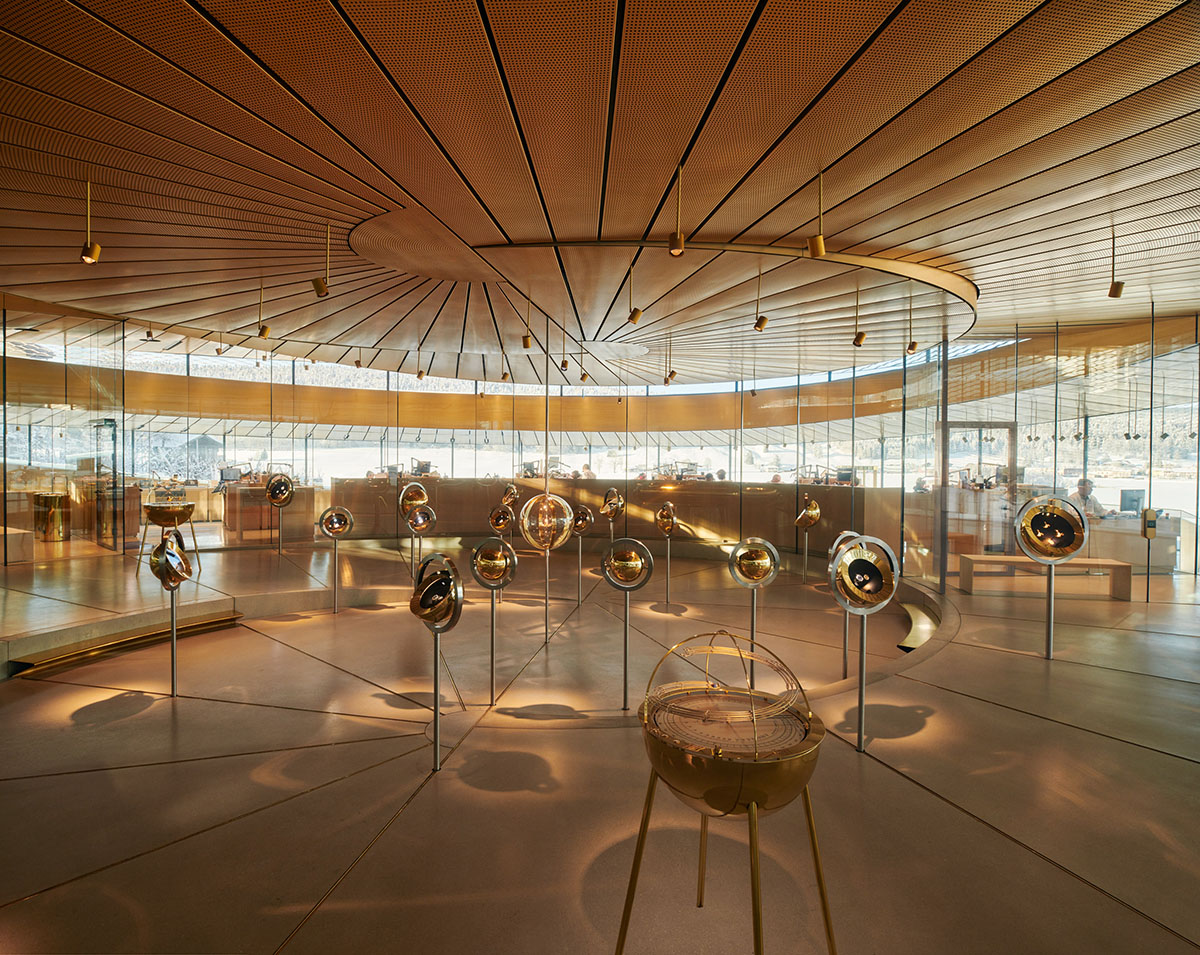
A pavilion for the art and science of watchmaking that is conceived as a storyline for the visitors - every element is governed by the functional requirements of the exhibition, while appearing as a striking sculpture conceived in a single gesture.
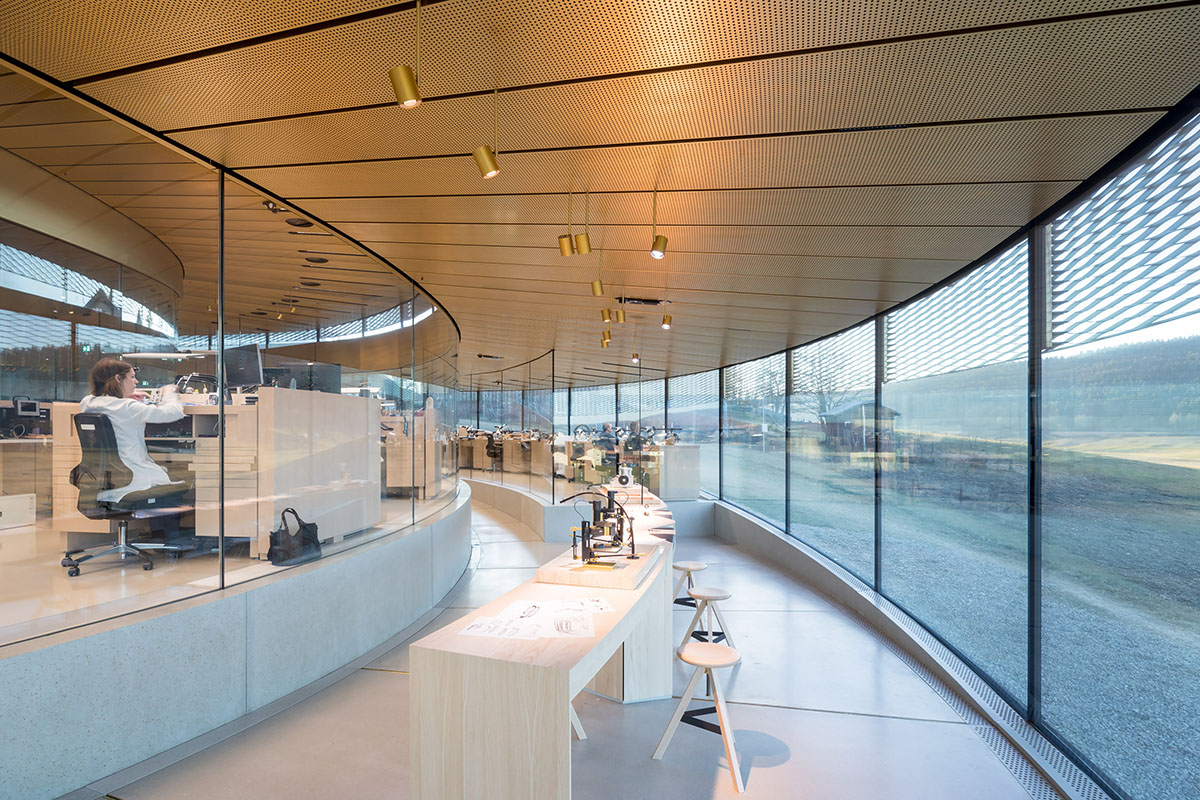
There two ateliers within the building, through these atelier spaces, visitors will be able to watchmakers. The Grandes Complications workshop allows visitors to show how a single watch was assembled from 648 pieces in the eight months, while the second workshop, the Métiers d'Art, allows jewellers to work on the new Haute Joaillerie collections.
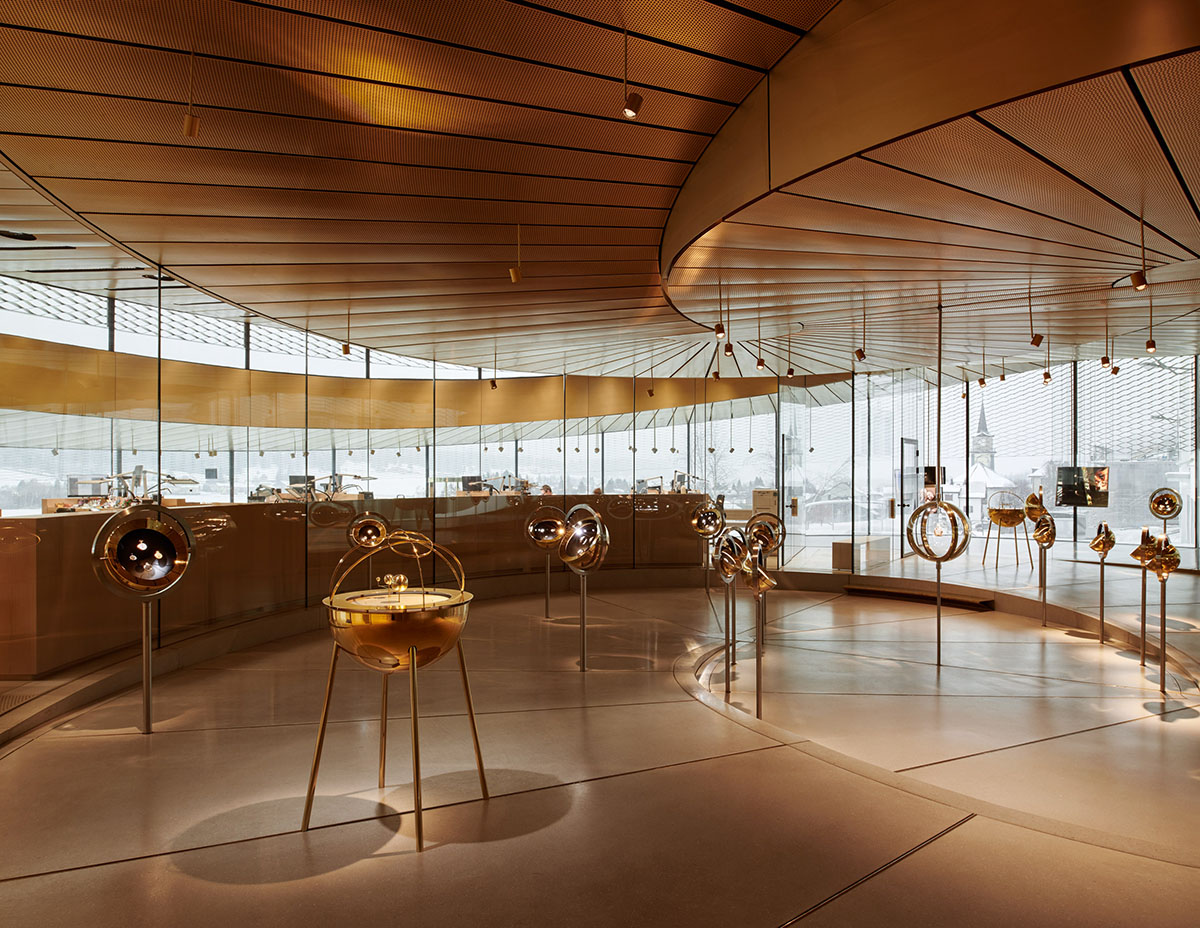
In the interiors, BIG used bronz color palette to reveal the best watch pieces within an astronomical atmosphere. The exhibition spaces of the museum was designed by German studio Atelier Brückner, the exhibition space will showcase 300 watches from Audemars Piguet's collection.
At the centre of the exhibition, the brand showcases its most complicated watch, which was completed in 1899 in the golden world. Other watches are also scattered around it with planet-shaped cases in a solar system.
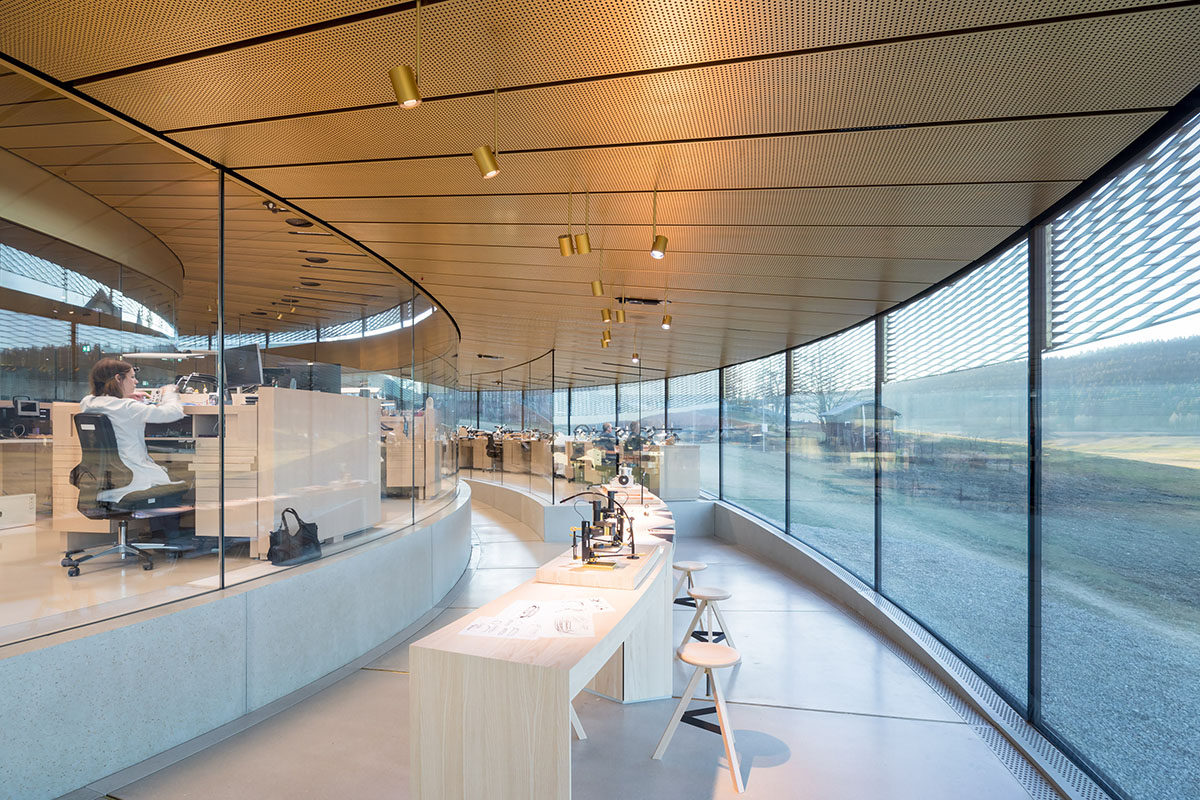
Focusing on the inner world of the watch, visitors can move around the these bronz metal sculptures and can enjoy the interactive displays to be able to understand the mechanism, science and the world of a watchmaking process.
BIG first revealed plans in 2014 for Musée Atelier Audemars Piguet.
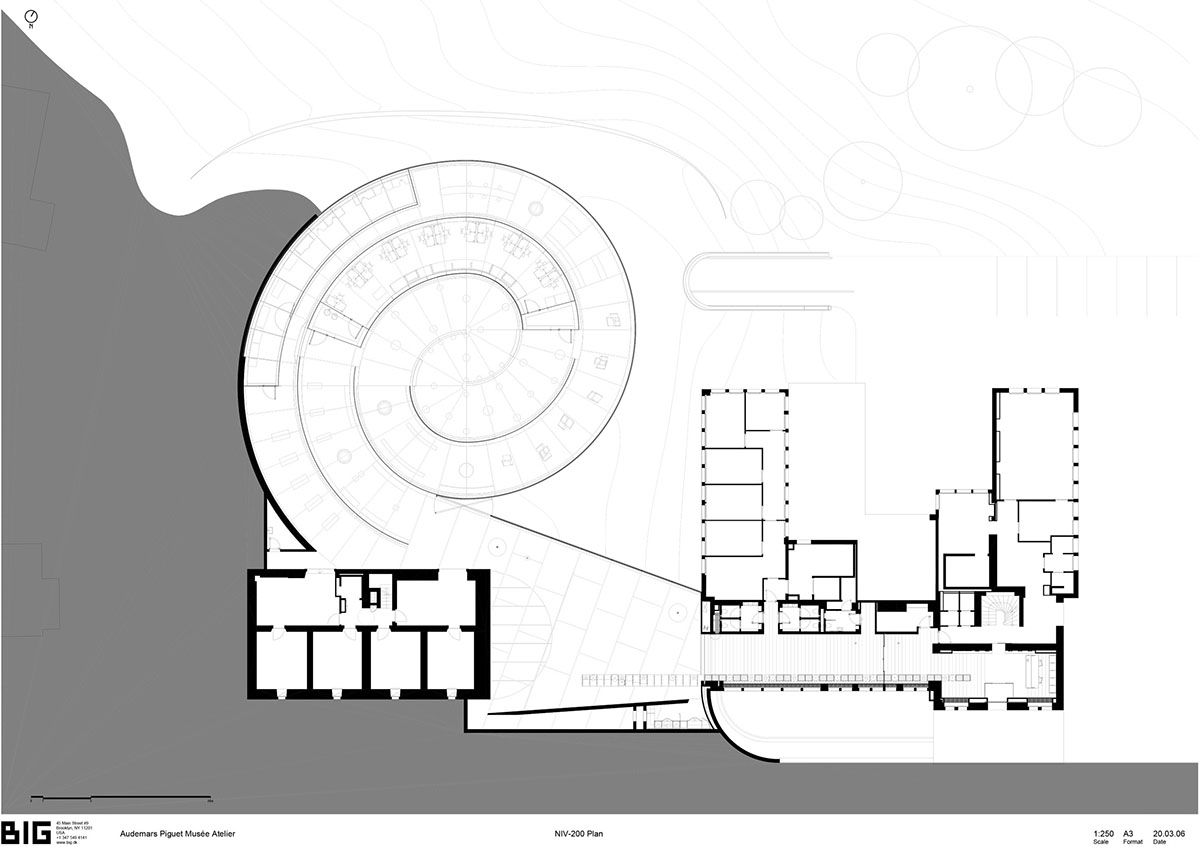
Ground floor plan
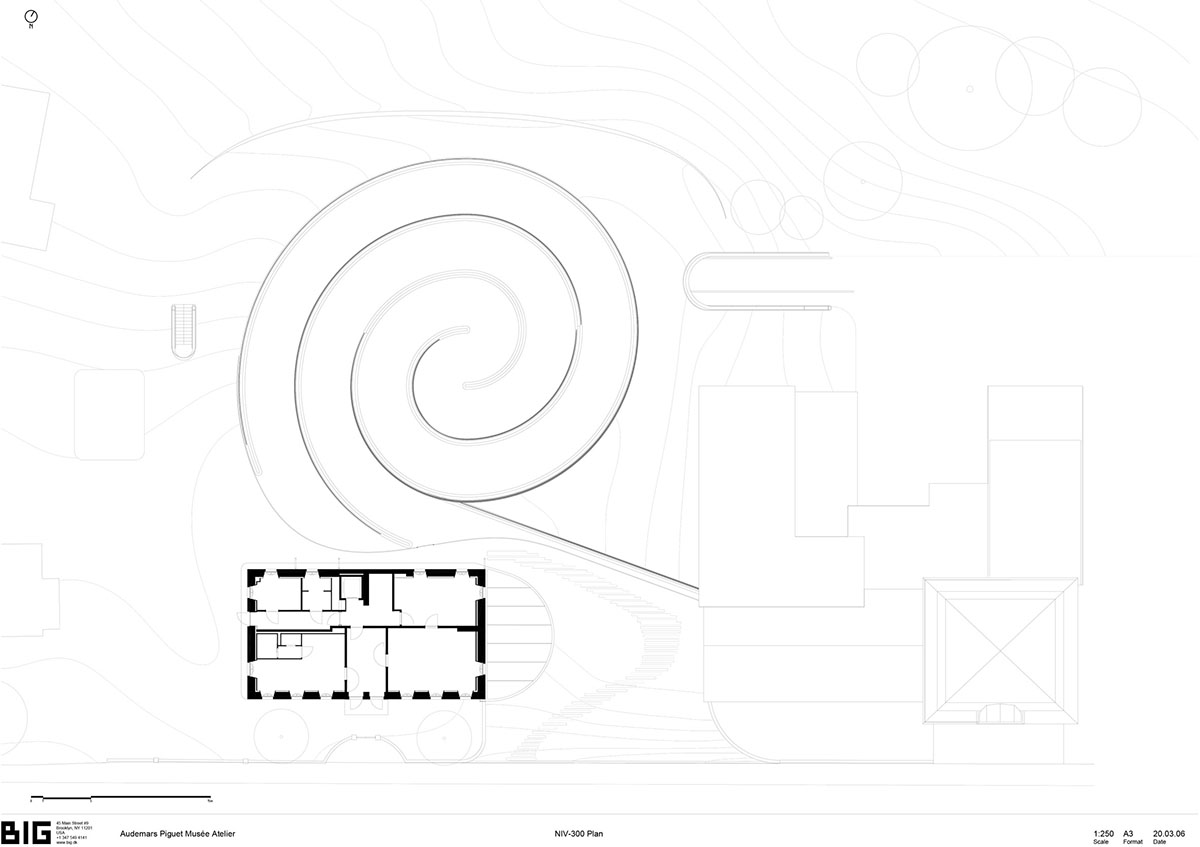
Roof floor plan
Project facts
Partners-in-charge: Bjarke Ingels, Thomas Christoffersen, Daniel Sundlin, Beat Schenk
Project Leaders: Rune Hansen (Project Manager), Simon Scheller (Project Manager), Matthew Oravec (Project Architect), Otilia Pupezeanu (Project Designer)
Team: Adrien Mans, Alessandra Peracin, Ashton Stare, Blake Theodore Smith, Claire Thomas, Dammy Lee, Eva Maria Mikkelsen, Evan Wiskup, Høgni Laksafoss, Iva Ulam, Jan Casimir, Jason Wu, Ji-Young Yoon, Julien Beauchamp-Roy, Kristian Hindsberg, Marcin Fejcak, Marie Lancon, Maureen Rahman, Maxime Le Droupeet, Natalie Kwee, Pascal Loschetter, Pierre Goete Teodor Javanaud Emden, Tore Bank, Ute Rinnebach, Veronica Lalli, Vivien Cheng, Yaziel Juarbe
Status: Under Construction
Size: 2373m2
Project type: Competition
Client: Audemars Piguet
Collaborators: BIG IDEAS, HG Merz, Luchinger und Meyer, Muller Illien
All images © Iwan Baan
All drawings © BIG
> via BIG
